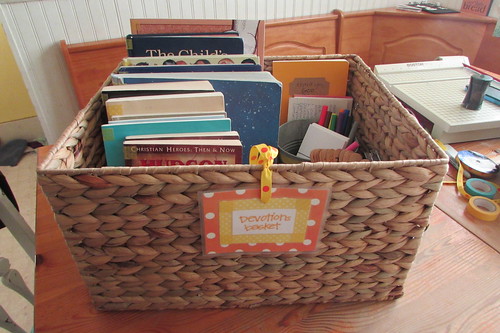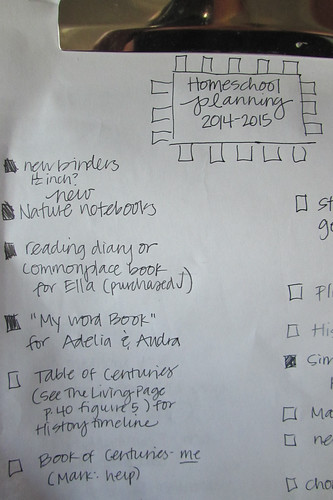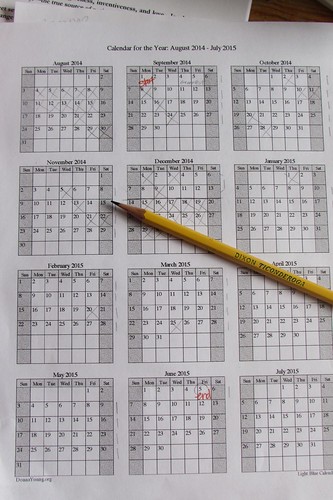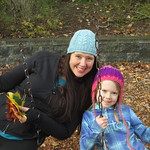I should remind you that I'm a paper and pen kind of a girl. I know there are whole planning worksheets/guides/printables/programs available for school planning. I can't link you to them, though, because I don't plan like that. I need to write it all down and see it. I need to physically cross things out and add to my lists, whittle them down and then make a fresh (cleaner, shorter) list, add more to that list and then start a whole other list on another page.
I can tell you how I plan. I've been doing this for seven years now and I definitely have a system. Here are the first three things I do each year as I plan for the following school year:
1. Pray.
I can't emphasize this enough. These are God's kids; this school year belongs to Him, as does every single other one. He knows what our children need. Ask Him for wisdom, for clarity about your schedule and curriculum choices, for inspiration, motivation and discipline. Ask Him to help you with whatever conundrum you're facing as you look ahead to this next school year.
2. Evaluate your previous school year.
This sounds like a lot of work, I know. But it doesn't have to be. Simply think through what worked and what did not work (and why it didn't). This can be anything from a quickly jotted down list (or a conversation with your husband) to a more complete analysis of each subject.
I like to do this at the end of the year while my thoughts are still fresh. The way I do this is that I look at our schedule from the previous year and just break it down: what worked (strengths) and what did not work (weaknesses). When I evaluated our year my list looked like this:
WHAT WORKED? Bible time, narrations, science, dictation, Shakespeare, piano practice, (most) chore assignments, math, school with the little girls, copywork.
WHAT DID NOT WORK? Picture study, geography, poetry, consistently waking up on time. And sadly: read-aloud (I chose boring titles this year. It was painful.)
I have some undecided subjects, too. For devotions we started strong but sort of faltered. Same for our story time (picture books). Written narrations were great when we were faithful but we were not consistent.
Even if this is your very first year of homeschooling, you can still do this! You may not have school subjects to evaluate but
you can still examine what is working in your routine.
Note: I find that the easiest way to
add something into our schedule is to tag it on to a routine that is solid in our home. For us it was as simple as breakfast. We always ate breakfast together at the start of our day, and we were all in one place. So I added Bible time after breakfast, then memory work, then we tucked in narrations after the Bible story. Then after breakfast we decided to do "after-breakfast-chores", etc. We just built our schedule brick by brick, so to speak.
3. Print out a calendar.
You've got to look at your year as a whole. (You can go
here (donnayoung.org) to view a variety of free, printable calendars.)
We school for 36 weeks, so I need to look at the calendar to see where we can come up with 36 weeks, first crossing off birthdays and Mark's days off and the entire month of December. I simply pick a start date and then tally up weeks on the right-hand side of the calendar months until we get to 36 - and, voila!- we have a finish date!
And now I know we only have a couple more weeks to plan for our Sept. 1st start date.
Yikes.
and The Big Picture Story Bible
and The Jesus Storybook Bible
)
and others by Susan Hunt (Big Truths for Little Kids & Discovering Jesus in Genesis & Exodus)
), to list things we're thankful for








